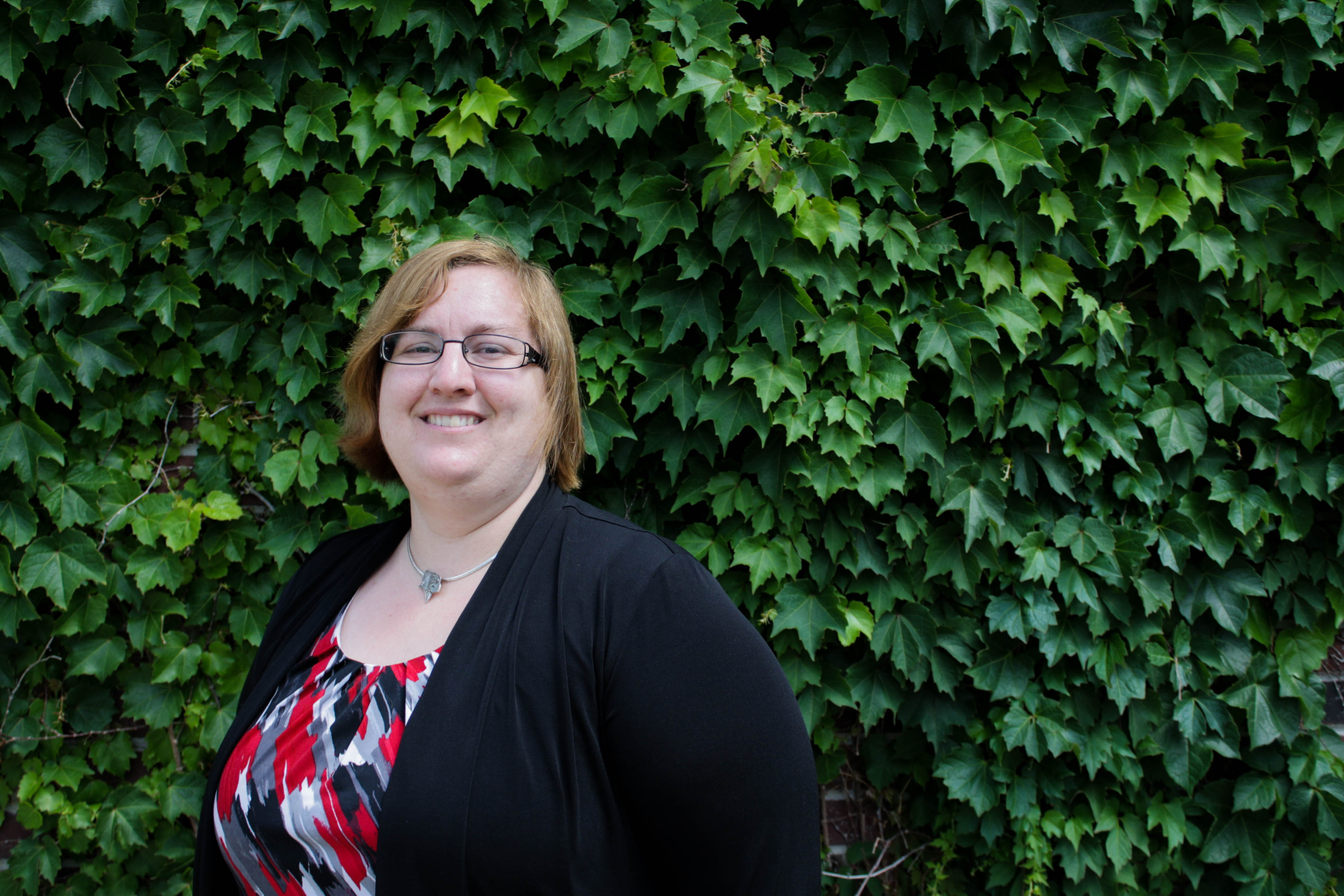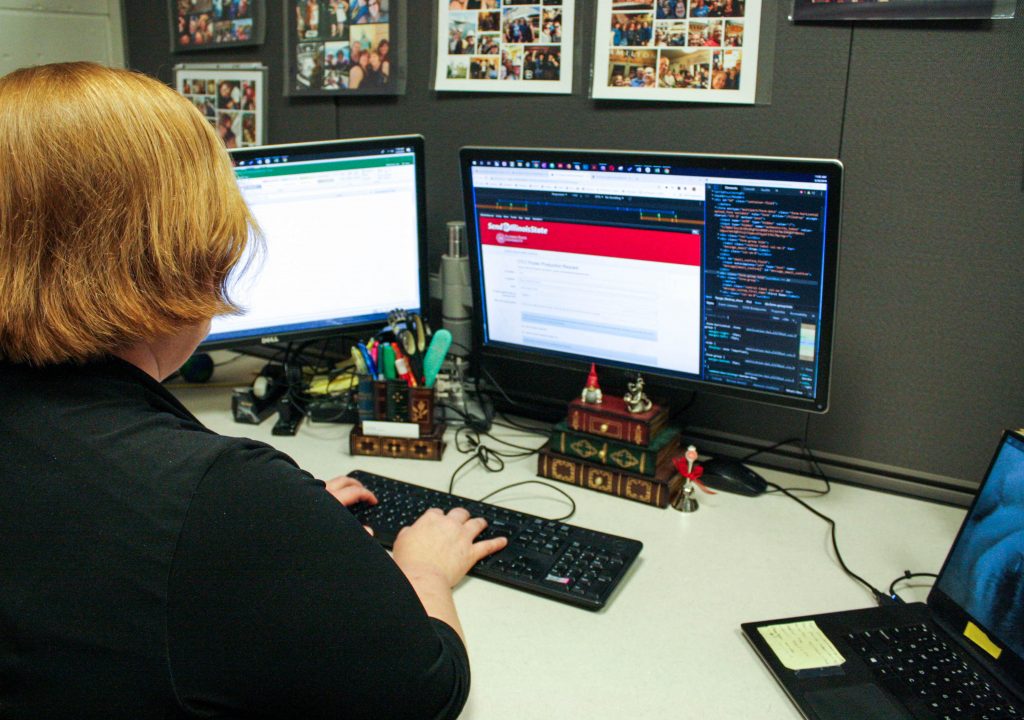Summer can mean hitting the beach and surf for many across campus, but Jen Bethmann is busy on an almost daily basis riding a different kind of WAVE—a web accessibility tool/extension used to measure and evaluate the universality of websites. Bethmann currently serves as the University’s web accessibility coordinator in Administrative Technologies under the umbrella of the Web and Interactive Communications team.
Bethmann’s role serves Illinois State’s core value of inclusion. The University is home to individuals who may need a variety of accessibility services for vision, hearing, cognitive, motor, and other disabilities. “We are striving to create digital environments inclusive to all regardless of ability or disability,” said Bethmann, who noted the goal is to make sure people can access the information. Intuitive layouts, captioning for videos, image-use, and even color contrast are important to a website’s usability.
“The underlying code helps provide access to information for all,” said Bethmann. “It needs to answer the question: ‘Does the website or web presence have a story that is consistent and makes sense regardless of format?’”
Oftentimes her search for universal access will go beyond the sites and include the digital documents and forms that are often housed there. “In my effort to educate, I can demonstrate the usage of the screen-reader and take the authors through their own webpage or form.” She explained how the program is recognizing (or not recognizing) certain text, graphics, and fields. “If we do not put in the story, then a visitor is not able to know there is text there inside a picture or icon.”
A lot of users simply do not know that programs like Microsoft Word and other off-the-shelf software already have content and configuration readily available to assist with universal design. “Unfortunately, most of us are not taught about these tools in our early training,” said Bethmann. “For instance, document structure is essential to accessibility, and most of these tools and programs not only know this, but include standard help to assist with it.”
Prior to serving as the accessibility coordinator, Bethmann spent time as a graduate assistant in Student Access and Accommodation Services in the Text Conversion Lab. There she captioned course videos for students who were deaf or hard of hearing. “I captioned thousands of videos on topics ranging from special education to business to biology. Some were Ph.D.-level courses, and I always joke that I gained an education in addition to my intended education!” Something Bethmann is quick to remind folks is the need to review the captioning, whether it be automated or personally entered. “I like to show those who are new to captioning some Disney Frozen videos that are auto-captioned to demonstrate how horribly wrong those things can go.”
One of Bethmann’s favorite campus moments came courtesy of serving on part of a team to rework the application to Illinois State University. She witnessed first-hand how a student tester with a screen-reader was able to find success. The student, who was previously unable to finish without additional personal assistance, was able to start and complete the entirety of the process of applying in under an hour. “We were able to demonstrate that our University is indeed OPEN to an even more diverse group than before, increasing our reach into this community.”
Arturo Ramirez, director of Web and Interactive Communications, shared, “Jen is a relentless advocate for diversity and inclusion. She truly personifies those values, and we are constantly amazed as she finds new ways to show that a little extra work can go a long way to enhance our digital environments.”
Whether helping to ensure larger “touch targets” are part of web design for mobile accessibility, teaching and training users to incorporate “alt tags” for pictures (or leave them out completely if not necessary to the story), or demonstrating technique as a guest lecturer in a course, Bethmann said she cannot seem to “stop nerding-out on accessibility.” Also a trained technical theater stage manager, she found herself just weeks ago at a Sunday matinee in Chicago. There she was unfamiliar with some of the translations being sung, but got terribly excited when she realized at the front-of-house was a display with a live transcription/captioning. “It was really cool…and convenient…and accessible!”
For more information on accessibility, or to schedule an appointment/assessment with Bethmann—or even to have her guest lecture in a class—reach out to Web and Interactive Communications.


